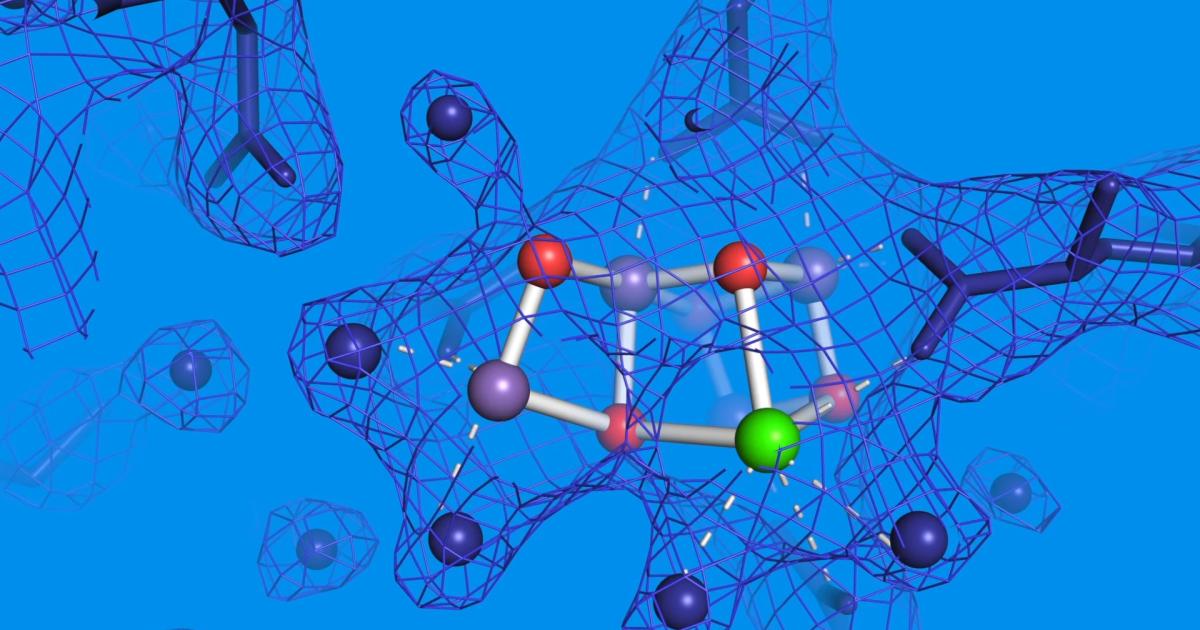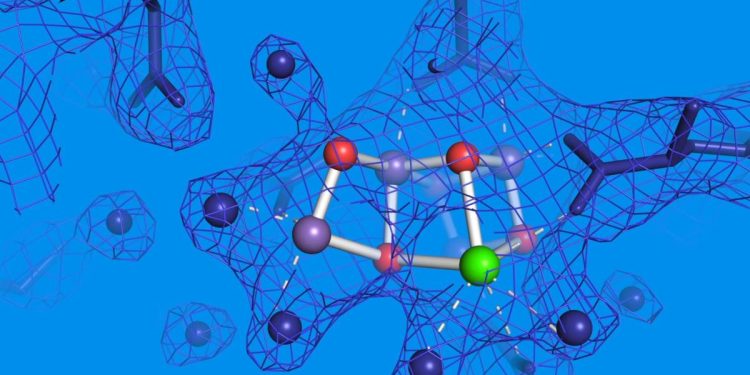Scientists observe elusive missing step in photosynthesis’ final stage

Researchers at the SLAC National Accelerator Laboratory and Lawrence Berkeley National Laboratory (along with collaborators in Sweden, Germany and the UK) have shed new light on the final step of photosynthesis. They observed in atomic detail how Photosystem II, a protein complex found in plants, undergoes a transformation that leads to the loss of an extra oxygen atom. Scientists believe the discoveries will help provide a roadmap for optimizing clean energy sources. “It’s really going to change the way we think about Photosystem II,” said Uwe Bergmann, scientist and professor at the University of Wisconsin-Madison, who co-authored the paper.
Researchers took “extremely high-resolution images” of different stages of the process (at room temperature), giving them new insight into specifically how and where the oxygen is produced. Baseball can provide a simple (if somewhat forced) metaphor to illustrate the process. “The center cycles through four stable oxidation states, known as S0 through S3, when exposed to sunlight,” SLAC explains. “On a baseball field, S0 would be the start of the game when a player on home base is ready to go to bat. S1-S3 would be players on first, second, and third.” Based on this metaphor, a batter making contact to advance the runners signifies the complex absorbing a sunlight photon. “When the fourth ball is hit, the player slides into home, scoring a run or, in the case of Photosystem II, releasing one molecule of breathable oxygen.” It’s that final stage (S4, between third base and sliding home in our metaphor) that they imaged for the first time, where two oxygen atoms bond to release an oxygen molecule, revealing additional steps previously unseen.
The video below illustrates the team’s process and discoveries.
“Most of the process that produces breathable oxygen happens in this last step,” said Vittal Yachandra, a scientist at Berkeley Lab and co-author of the paper, published in Nature. “But there are several things happening at different parts of Photosystem II and they all have to come together in the end for the reaction to succeed. Just like how in baseball, factors like the location of the ball and the position of the basemen and fielders affect the moves a player takes to get to home base, the protein environment around the catalytic center influences how this reaction plays out.”
The researchers expect an X-ray upgrade later this year to shed more light on the process. It will use a repetition rate of up to a million pulses per second, up from the 120 per second used in this experiment. “With these upgrades, we will be able to collect several days’ worth of data in just a few hours,” Bergmann said. “We will also be able to use soft X-rays to further understand the chemical changes happening in the system. These new capabilities will continue to drive this research forward and shed new light on photosynthesis.”
The team believes the results will help them “develop artificial photosynthetic systems that mimic photosynthesis to harvest natural sunlight to convert carbon dioxide into hydrogen and carbon-based fuels.” Jan Kern, another co-author and scientist at Berkley Lab, said, “The more we learn about how nature does it, the closer we get to using those same principles in human-made processes, including ideas for artificial photosynthesis as a clean and sustainable energy source.”
All products recommended by Engadget are selected by our editorial team, independent of our parent company. Some of our stories include affiliate links. If you buy something through one of these links, we may earn an affiliate commission. All prices are correct at the time of publishing.
Published at Wed, 03 May 2023 21:49:47 +0000





